“Thirty-Nine” (서른, 아홉)
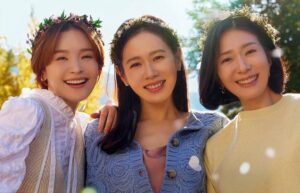
“Thirty-nine” is a reminder that while we’ve all made mistakes in our lives, we can’t continue to punish ourselves forever. Life is short. There is no guarantee of a tomorrow. Be honest and live your best life.
Journalist, Author & Syndicated Columnist

“Thirty-nine” is a reminder that while we’ve all made mistakes in our lives, we can’t continue to punish ourselves forever. Life is short. There is no guarantee of a tomorrow. Be honest and live your best life.

The burgeoning romance in “Twenty-Five Twenty-One” is based on a strong friendship. But some viewers have pointed out that the story would’ve been more effective if the female lead character hadn’t been underage when they met.

There’s a lot to unpack underneath the surface of Netflix’s hit zombie thriller. Here are six examples of how “All of Us Are Dead” utilizes the zombie genre to reflect on societal issues that are reflected around the world, with a focus on some issues unique to South Korea.

During this pandemic when most of us can’t travel and are stuck at home, we can live vicariously through the delicious adventures of Rain and Noh Hong-chul in “The Hungry and the Hairy.”

Lately, there have been some compelling K-dramas where the female lead is more than just an object of desire. Rather, she is the capable one who is an integral part of the plot. Here are 11 K-dramas from recent years that exemplify female empowerment.

Narrowing down the best-of list to just 11 K-dramas was painstaking. But these shows from 2021 are must-sees that you will want to add to your watch list. Below, dive into the best K-dramas of 2021.

The superb “D.P.” is not an easy series to watch. While not as gory as “Squid Game,” it’s more disturbing in many ways, because it deals with South Korea’s real-life mandatory military duty — which requires every able-bodied Korean man to enlist for approximately two years.

“Squid Game” is not this year’s “Parasite,” so much as it is a satire in the vein of “A Modest Proposal.” Just as Jonathan Swift pointed out the abject brutality of telling the poor to satiate their hunger by eating healthy, plump babies, Hwang depicts the cruelty of lording a huge sum of money – literally – over desperate people’s heads, knowing that most will die as they lived: penniless.

“Mine” is a women-centric K-drama in which the worst actions have been created by men. Their immorality serves as a cause and effect for a chaebol family’s misery.

“Move to Heaven” is a beautiful and at times brutal series that tells so many touching stories. One of the most important aspects was in how the series showed respect for the dead, even when the supposed loved ones of the deceased don’t seem to care.

The showrunners behind “Vincenzo” took their time in letting the highly engaging story unfold in a believable way. Well, as believable a story as you can have about a Korean-born child who ends up becoming a consigliere for a top mafia don in Italy. This series is one of Song Joong-Ki’s strongest K-dramas.

Like “Train to Busan,” “Kingdom” was released well before the coronavirus outbreak cause pandemonium worldwide. Both are sociopolitical projects disguised as zombie horror thrillers, where those in power don’t try to prevent the outbreak, so much as they try to stop news of the outbreak from being released. The public’s ignorance suits their own needs.

11 Best K-Dramas of 2020: Rivals, Lovers, and Slow Burning Intrigue. These shows are must-watch television. My latest for Teen Vogue.
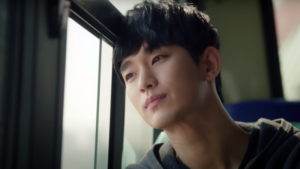
“It’s Okay to Not Be Okay” is an unconventional love story that also focuses beautifully on mental health. It depicts how the aftermath of abuse and abandonment affects the psyche, but reaffirms that no one is a lost cause — and that seeking help is self love.
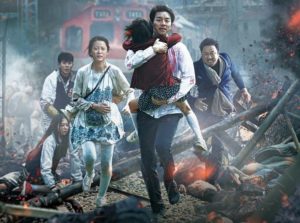
“Train to Busan” does a great job at depicting how people deal with death during unthinkable times. When your loved one is infected and your only option is to perish (as human beings) with them or kill them so that you (and others) can survive, what would you do?

A couple months after the series finale aired, I still find myself missing the characters in the superb K-Drama, “Crash Landing on You.”
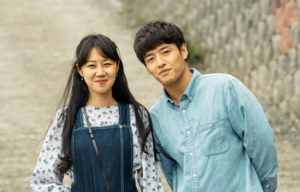
“When the Camellia Blooms” starts off with so many things happening at once that it’s initially difficult to focus on all the different story arcs: a serial killer, small-town pettiness, marital issues and the possibility of romance. But as the series progressed, each consecutive episode found its focus and finished with a sweet and satisfying finale that felt true to the characters. There is death and sadness dotted throughout the series. But at its core, “Camellia” is a story of love — not just between a man and a woman, but between parents and their children.
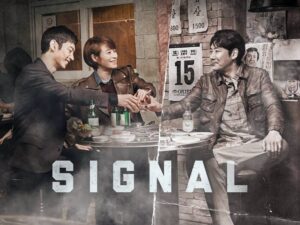
“Signal” makes you ponder the consequences of altering life. Is it fate for a person to die at a certain time, no matter how horrific that death might be? And knowing that saving someone’s life in the past could create catastrophic results in the future, would you still take that chance?
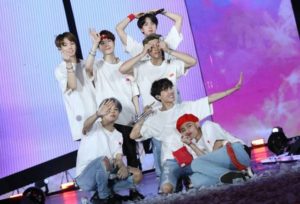
The finale of “Bring the Soul” coincides with the end of the European leg of BTS’ 2018 “Love Yourself” world tour. Each member is given his moment in the spotlight, but this episode was almost a coming-of-age tribute to Jungkook (who had just turned 21 on tour).

“Search: WWW” is the only K-Drama I can think of where women had the kind of lead roles that ordinarily would’ve gone to men. The female characters not only were the rainmakers where they worked, they were the decision makers who the men followed.